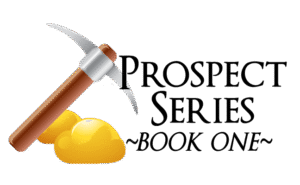 My book club selection last month was a book I loved and hated. I loved the writing. It was brilliant. Word choice, syntax, voice, clarity, emotion . . . they were all there in shining splendour. But the story! Oh my goodness. The story was horrible. The main characters were depraved, the weak were exploited and the innocent defiled. Even the ending felt hopeless. I searched and searched for one redeeming quality in the MC’s — after all the “experts” say even a villain should have a soft spot somewhere. Not in this case. I tried to find a better tomorrow from the sacrifice of the ‘good’ characters, but couldn’t find it. The story left me depressed and feeling besmirched.
My book club selection last month was a book I loved and hated. I loved the writing. It was brilliant. Word choice, syntax, voice, clarity, emotion . . . they were all there in shining splendour. But the story! Oh my goodness. The story was horrible. The main characters were depraved, the weak were exploited and the innocent defiled. Even the ending felt hopeless. I searched and searched for one redeeming quality in the MC’s — after all the “experts” say even a villain should have a soft spot somewhere. Not in this case. I tried to find a better tomorrow from the sacrifice of the ‘good’ characters, but couldn’t find it. The story left me depressed and feeling besmirched.
I’ve turned to one of my favourite “gentle” reads as a palette cleanser. I need to read about moral people. Characters who act on high principles. Story-lines that encourage and enlighten. A book that lets me sleep at night without bad dreams.
But, the experience made me wonder how authors chose their stories. How does a person sit down with a pen and a blank sheet of paper and decide I want to write “this” story. In genre fiction there are certain reader expectations that must be met. e.g. romance needs a “happily-ever-after,” mystery needs a solution, murderers must be brought to justice . . . But, even within those parameters there are millions of stories that can be told. What makes an author choose the one that goes onto the page? Or what makes a reader decide to enter the world of “that” story?
Author’s are often advised to “write what you know,” but the author of the book I hated is not a bad person. He has not killed, he has not unleased immorality on a town, he has not exercised unbridled power to destroy his rivals. In fact, when asked why he’d written this book, he answered that “it just came to him.” And once he had the idea, he went with it.
In my own books, I wanted to tell a story about my country and it’s history. I also wanted to write a romance, so the Prospect Series was born. Jane Austen must have taken delight in exposing the foibles of her society. But Emily Brontë? What made her want to explore the darkness in Heathcliff’s soul? She was the daughter of a clergyman, brought up in gentile circles and surrounded by loving siblings. Was it the wildness of the moors that inspired her to write Wuthering Heights? By the way, the book was ill-received upon first publication. It was considered too wild and savage. Only years later was it added to the list of great English novels.
Readers have diverse tastes, and I rejoice that there are books to meet every need. I’m glad my book club presses me to explore different books. And I’m really happy that I have the freedom to read the books I like and set aside those I don’t. What a sad and straight-jacketed world it would be if everyone had to conform to my idea of a good book.
The Frankfurt Book Fair, the largest book fair in the world, just wrapped up. The five day event included 1000 authors from 92 different countries and around 200,000 visitors. Three cheers for authors and publishers! May we all continue to thrive and find our happy place between the covers of a good book.
How do you choose a story? Drop a comment here.

 My book club meetings have started up again. Back to school anyone? We reviewed
My book club meetings have started up again. Back to school anyone? We reviewed 
 School’s back in session, so time to settle down to a regular routine at my writing desk. September landed on the calendar so abruptly I feel as though I’ve been caught with my homework undone. I’m used to a few days grace before Labour Day and the back to work schedule. I guess the upside will be in December when Christmas falls on a Thursday. Mid-week holidays seem easier to me than those that fall on Monday.
School’s back in session, so time to settle down to a regular routine at my writing desk. September landed on the calendar so abruptly I feel as though I’ve been caught with my homework undone. I’m used to a few days grace before Labour Day and the back to work schedule. I guess the upside will be in December when Christmas falls on a Thursday. Mid-week holidays seem easier to me than those that fall on Monday. Went to the movie, “Jane Austen Wrecked My Life.” I hadn’t read much about the show but the title intrigued me so much, I joined a couple of female friends — no husbands wanted to come — and had a girls night out. The movie was not what any of us expected. To begin with, it was in French with English sub-titles. The scenery was beautiful and the plot . . . took some work to find.
Went to the movie, “Jane Austen Wrecked My Life.” I hadn’t read much about the show but the title intrigued me so much, I joined a couple of female friends — no husbands wanted to come — and had a girls night out. The movie was not what any of us expected. To begin with, it was in French with English sub-titles. The scenery was beautiful and the plot . . . took some work to find.
 The speaker wears a black robe with an ornately tied ribbon at the back, and a tricorn hat. This medi
The speaker wears a black robe with an ornately tied ribbon at the back, and a tricorn hat. This medi


 It seems the media headlines are nothing but bad news these days. The constant stream of worry and stress and fear weighs on my spirit. Thus, I was pleasantly surprised when I had to spend a day on foot in my home town. It began when a teenager paused and held a door for me. He could easily have been on his way without that little gesture of kindness. I was at least six feet away.
It seems the media headlines are nothing but bad news these days. The constant stream of worry and stress and fear weighs on my spirit. Thus, I was pleasantly surprised when I had to spend a day on foot in my home town. It began when a teenager paused and held a door for me. He could easily have been on his way without that little gesture of kindness. I was at least six feet away. Oh dear! I’ve been very remiss in keeping my blog posts up-to-date! There are any number of excuses — Easter, election, gardening, book club, writers’ group — no shortages of excuses, the question is: are they valid?
Oh dear! I’ve been very remiss in keeping my blog posts up-to-date! There are any number of excuses — Easter, election, gardening, book club, writers’ group — no shortages of excuses, the question is: are they valid?
 T.S. Eliot
T.S. Eliot

Recent Comments